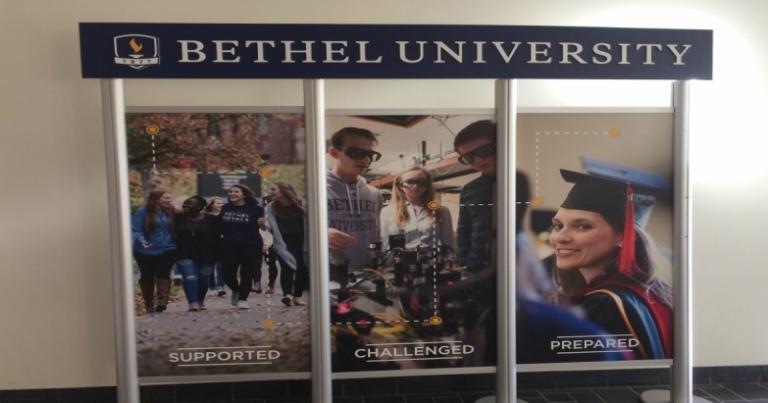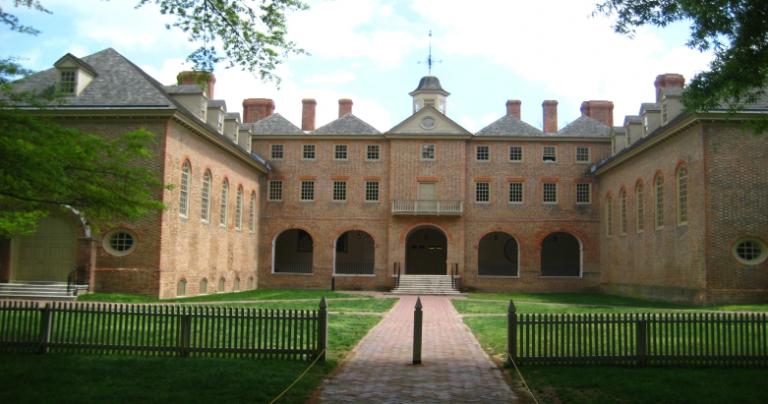College admissions being what it is these days, I know that some members of this fall’s entering class won’t actually make their decision until deep into the summer. But this is generally the time of year that most of those decisions are being made. So if you (or your child) are struggling to pick between colleges, let me suggest four questions you should answer before picking a school.
1. Does the college or university have rigorous academics?
I know this will seem like a no brainer, given that we’re talking about higher education. But I’ve been around college admissions and marketing enough to know that academics often take a rear seat to other considerations.
So before you go any further, take a moment to clear through all the noise you’ve heard about food, parking, sports, roommates, and lazy rivers and recognize that you shouldn’t even be considering a college or university if you’re not convinced that it’s academically rigorous — both in general education (see #2) and your likely major field of study.
Rigor doesn’t mean reputation. Don’t trust a US News ranking, or start wondering if you should have reached all the way to the Ivy League. Think back to how the school presented itself on its own terms. Go back to the institution’s website and see (a) how easy it is to find academic departments and programs and (b) whether teaching, learning, and research are spotlighted on that landing page. Did the admissions officers encourage you to talk to a professor or department chair, or did they try to fill your schedule with extracurriculars? Did they ever reassure you that classes weren’t hard — or that the professors weren’t “intimidating”?
What you should want to see and hear is not necessarily that the school requires a certain standardized test score or high school GPA requirement. The track record of an entering class isn’t evidence of the teaching and learning that takes place once you’re at a college. What you should look for is evidence that the college will meet you where you are and push you to develop in your knowledge and skills.
For example, I hope that part of what draws students to Bethel (regularly ranked as “An A+ School for B Students”) is that people hear us use the mantra “challenge and support.” Even in required gen ed classes like the Western Civ/church history survey I coordinate, we push students to work hard and, more importantly, to grapple with complicated, often paradoxical concepts… but we offer them a list of resources that fills up an entire page in the syllabus. (For example, tonight I’ll be leading an optional exam review session in one of our first-year dorms, on top of my regularly scheduled discussion sections on Thursday. Plus we’ve got a team of undergraduate teaching assistants holding twice their usual number of office hours.)

2. Does the college place a high value on general education?
This is really 1a. It requires a bit more unpacking, but start by again thinking through how academics were presented in your visit to the college’s website and campus. If the school seemed to be burying its general education requirements or — almost worse — if they came up only to the extent that someone tried to reassure you how easy it would be “check them off”… Well, I’d strongly suggest you look elsewhere.
Maybe take a second look at the college with the mediocre cafeteria and underachieving football team whose website highlights a well-designed core curriculum. Chances are that it even had a dean or professor make time to tell your group of visiting students about the importance of gen ed.
I know, I know: I’m a history professor, living in a time when universities can cut the history major and still claim to emphasize the liberal arts because they have a general education curriculum. That’s nonsense, but yes, I’ve got a vested interest in schools maintaining robust gen ed.
Still… precisely because it’s more and more likely that the gen ed curriculum is the only place where most college students will encounter the arts, humanities, and social sciences, it’s absolutely essential that you take that curricular core seriously at the outset. If you’re majoring in a professional or STEM field, where do you think you’re going to pick up all those soft skills that employers consistently claim matter as much as — if not more than — the hard skills emphasized in your 80+ credit major?
Doubt me? Google studied fifteen years’ worth of internal hiring, firing, and promotion data and found that its top employees had eight fundamental skills. Technical competency in STEM fields was the least important of the eight. At Google.
What mattered more were things like writing, speaking, critical thinking, problem solving, coaching, empathy, and understanding different perspectives and values. Where do you think you’re going to learn those skills if not in the general education curriculum?
(And don’t gloat, handful of you planning to major in the humanities. Nothing will help you stand out as much as the quantitative reasoning and data analysis skills that you’re going to develop in those math and science classes you’re tempted to test out of.)

3. What is its loan default rate?
Dollar figures weigh heavily in the balances for most any student or family. By this point, you’ve probably spent enough time with the byzantine workings of financial aid to forget what the sticker price of tuition even was. So long as you’re satisfied with the answers you’ve come to for the first two questions, the best aid package might well win out.
But unless you’re in the enviable situation of not needing to borrow anything to finance your higher education, be sure to consider the school’s loan default rate alongside the other numbers. (The linked page will show you federal loan data through FY13 for over 4,000 colleges and universities; private loans aren’t included.) On average, about 7% of students at four-year colleges and universities in the United States will one day find themselves in default — a bit less for privates, a bit more for publics. The average rate for for-profit schools is twice that high.
So be wary of a school that trumpets its affordability… but is nonetheless at or above the average loan default rate for its type and state. That discrepancy can suggest a number of explanations, most of them alarming. For example, its professional programs might not be highly regarded by employers (or aren’t supported by an effective career services office) and so don’t constitute a pathway to well-paying jobs. Or maybe a significant number of students aren’t even able to graduate because of lackluster academic support.
Unless the loan default rate is well above the national average, I still wouldn’t place too much emphasis on that number, or on the salary data you can find at sites like PayScale. The return on your college tuition investment will be measured by far more than economic security and status. And many readers of a site like this might not only feel called into a low-paying but highly meaningful profession, but want to experience even more than intellectual growth in college.
4. Will your time at this college help you learn to love God and your neighbor?
Important as every other question is, none matters as much as this, a version of the question that any follower of Jesus Christ should ask of themselves throughout their lives.
Certainly it’s a question to be asking at the stage of life when most of us start to make our faith our own: when we recognize that while religion can be inherited or imitated, following the way of Jesus requires a free decision.
I teach at a Christian university that claims to form “whole and holy persons,” and believe strongly in that mission. But I’m not here to tell Christians that they ought to avoid public institutions — or private ones that don’t approach Christian higher education the way members of the Council for Christian Colleges and Universities do.
It might be that the most important thing you need to do at this point in your walk with Christ is to take classes from or about non-Christians, or to room with them: to engage with the religious diversity that’s been missing from your childhood and adolescence, but will almost certainly be an important part of your remaining years. Not to say that such engagement can’t happen at universities like mine, but it might be that a large state university or religiously plural Catholic or Lutheran college will do more to teach you how to love your non-Christian (or non-religious) neighbors.
And love of God can grow in all sorts of educational settings. Much as I’ve come to cherish the holistic education that’s offered at Bethel, where I think students truly learn to love God with heart and soul, as well as mind, I don’t regret attending a public college. I didn’t take Bible or theology courses at William & Mary, but I did step back and study religion — my own, and others — with both critical analysis and empathy. There was no chapel and I didn’t get involved in campus ministry groups, but for that reason, the local church where I worshipped remained the most important community in my life — one that was more educationally and socioeconomically diverse than our student body.
God give you wisdom, clarity, and peace as you make this decision, and the reassurance that he will be with you wherever you choose to go.













